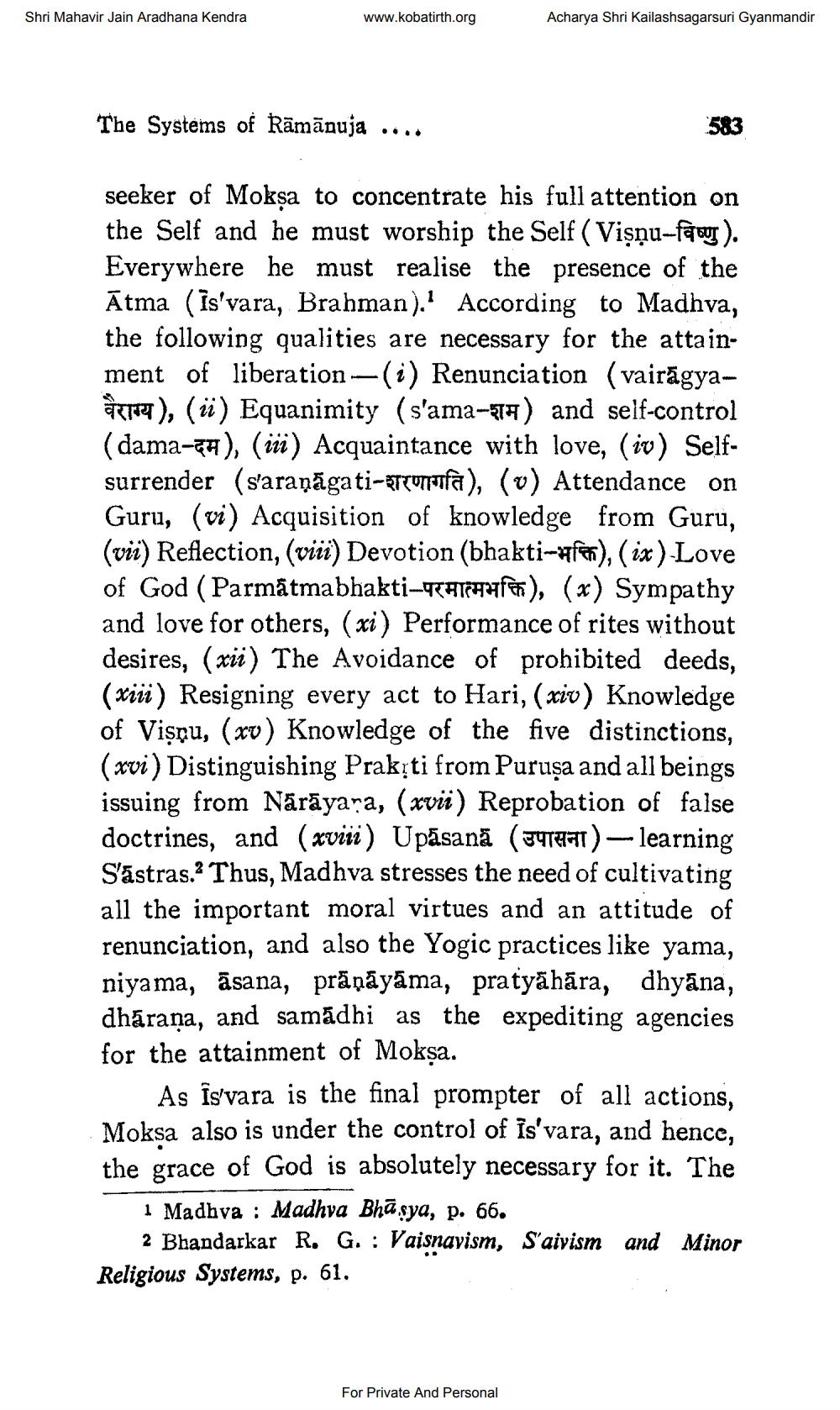________________
Shri Mahavir Jain Aradhana Kendra
www.kobatirth.org
Acharya Shri Kailashsagarsuri Gyanmandir
The Systems of Rāmānuja ....
583
seeker of Moksa to concentrate his full attention on the Self and he must worship the Self (Vişņu-fas). Everywhere he must realise the presence of the Ātma (is'vara, Brahman). According to Madhva, the following qualities are necessary for the attainment of liberation –(i) Renunciation (vairāgyaart), (ii) Equanimity (s'ama-7) and self-control (dama-44), (iii) Acquaintance with love, (iv) Selfsurrender (s'araņāgati-Trumfa), (v) Attendance on Guru, (vi) Acquisition of knowledge from Guru, (vii) Reflection, (viii) Devotion (bhakti-feri), (ix) Love of God (Parmātmabhakti-RATHER), (*) Sympathy and love for others, (xi) Performance of rites without desires, (xii) The Avoidance of prohibited deeds, (xiii) Resigning every act to Hari, (xiv) Knowledge of Vişņu, (xv) Knowledge of the five distinctions, (xvi) Distinguishing Prakrti from Puruşa and all beings issuing from Nārāyara, (xvii) Reprobation of false doctrines, and (xviii) Upāsanā (34491) — learning Sástras.? Thus, Madhva stresses the need of cultivating all the important moral virtues and an attitude of renunciation, and also the Yogic practices like yama, niyama, āsana, prāņāyāma, pratyāhāra, dhyāna, dhárana, and samadhi as the expediting agencies for the attainment of Mokșa.
As ss'vara is the final prompter of all actions, Moksa also is under the control of Is'vara, and hence, the grace of God is absolutely necessary for it. The
1 Madhva : Madhva Bhā sya, p. 66.
2 Bhandarkar R. G. : Vaisnavism, S'aivism and Minor Religious Systems, p. 61.
For Private And Personal




